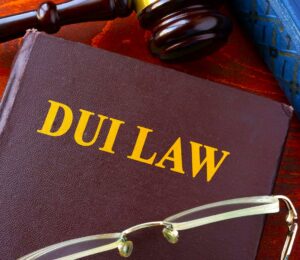Driving under the influence (DUI) or driving while intoxicated (DWI) charges are serious offenses that carry significant and long-lasting consequences, such as fines, license suspensions, increased insurance rates, and even imprisonment. These charges can also harm your reputation, employment opportunities, and personal relationships. It is crucial for individuals facing DUI/DWI charges to fully understand the legal process, their rights, and the potential consequences involved to ensure they receive the best possible outcome. By securing the representation of an experienced attorney specializing in DUI/DWI defense, you can create a comprehensive and effective defense strategy, taking into account the unique circumstances of your case and minimizing the damaging consequences to your personal and professional life.
This in-depth guide will cover the essential aspects of DUI/DWI defense, including the legal process, potential penalties and consequences, and effective defense strategies. Additionally, we will discuss the importance of hiring a qualified DUI/DWI attorney and their role in navigating this challenging and complex area of law. By fully understanding the DUI/DWI process and arming yourself with the right legal support and representation, you can face these charges with confidence and maximize your chances of a favorable outcome.
The legal process in DUI/DWI cases often begins with a police officer suspecting a driver of operating a motor vehicle under the influence of alcohol or drugs. This suspicion may be based on erratic driving, observed traffic violations, or a vehicle defect. Once stopped, the officer may administer a field sobriety test or a breathalyzer test to determine the driver’s level of intoxication. If the results indicate intoxication above the legal limit, the officer may arrest the driver and initiate the legal process.
The stages following arrest include booking, arraignment, pretrial hearings, plea negotiations, and trial. The outcome at each stage will depend on various factors, including the strength of the evidence and the effectiveness of the defense strategy presented by your attorney. In this article, we will outline the critical aspects of the DUI/DWI legal process, discuss potential penalties and consequences, and provide valuable insights into developing a robust defense strategy with the help of an experienced attorney.
Key Stages of the DUI/DWI Legal Process
The DUI/DWI legal process comprises several stages, each of which plays a critical role in determining the case’s outcome. These stages include:
1. Arrest and booking: The police officer arrests the driver if they suspect intoxication and conducts a breathalyzer or blood test to confirm the level of intoxication. The driver is then booked and processed at the local police station.
2. Administrative license suspension: In most states, the driver’s license is administratively suspended upon arrest for a DUI/DWI. A hearing can be requested to contest the suspension, but this process is separate from the criminal case.
3. Arraignment: The formal charges are presented, and the accused enters a plea of guilty, not guilty, or no contest. The court may also set bail or release conditions during this stage.
4. Pretrial proceedings: These legal proceedings include discovery, pretrial motions, and plea negotiations. An experienced attorney will use these opportunities to challenge evidence, suppress the results of improper tests, and negotiate a plea bargain, if appropriate.
Potential Penalties and Consequences of a DUI/DWI Conviction
A DUI/DWI conviction comes with various consequences, depending on factors like the driver’s blood alcohol content (BAC), prior convictions, and whether the incident caused injury or property damage. Potential penalties may include:
1. Fines and fees: A DUI/DWI conviction can lead to hefty fines and court costs.
2. License suspension or revocation: Convicted individuals may face a temporary or permanent loss of driving privileges, depending on the severity of the offense.
3. Jail time: In more severe cases or repeat offenders, jail time may be imposed.
4. Alcohol or drug education programs: The court may mandate the completion of substance abuse treatment or education programs.
5. Community service: A judge may require the convicted individual to complete community service hours.
6. Ignition interlock devices: These devices require the driver to submit a breath sample before starting the vehicle and may be mandated by the court for a specified period.
Effective Defense Strategies for DUI/DWI Cases
An experienced attorney can develop an effective defense strategy tailored to the unique circumstances and evidence in your case. Some common defense strategies include:
1. Challenging the legality of the traffic stop: If the officer did not have probable cause to initiate the traffic stop, any evidence collected after the stop could be suppressed.
2. Questioning the accuracy or validity of the breath or blood test: An attorney may argue that the testing equipment was not calibrated correctly or that the administration of the test was improper.
3. Presenting alternative explanations for observed behavior: Factors such as fatigue, medical conditions, or road conditions can sometimes mimic signs of intoxication and provide a basis for challenging the officer’s observations.
4. Arguing that the DUI/DWI checkpoint was conducted unlawfully: If the checkpoint did not follow established guidelines, the evidence collected at the scene may not be admissible.
Choosing the Right DUI/DWI Attorney
Selecting a DUI/DWI attorney with the right experience, reputation, and communication skills is essential to navigate the legal process successfully. Some factors to consider when choosing an attorney include:
1. Experience handling DUI/DWI cases: An attorney with extensive experience defending clients against DUI/DWI charges will have the knowledge, resources, and skills to advocate for you effectively.
2. Reputation within the legal community: A well-respected attorney will not only be aware of the nuances and complexities of DUI/DWI law but will also be well-equipped to negotiate and interact with prosecutors and judges involved in your case.
3. Responsiveness and communication: An attorney should be available to answer questions, discuss your case, and keep you informed throughout the legal process.
Conclusion
Facing DUI/DWI charges can have long-lasting and far-reaching consequences for your personal and professional life. Understanding the legal process, potential consequences, and your rights as the accused is essential to securing the best possible outcome. An experienced attorney can help you navigate the complexities of the criminal justice system, develop an effective defense strategy, and minimize the lasting impact of a DUI/DWI charge on your life. If you or a loved one is facing DUI/DWI charges, do not hesitate to contact BFP Law Firm for expert guidance and representation throughout this challenging ordeal.






